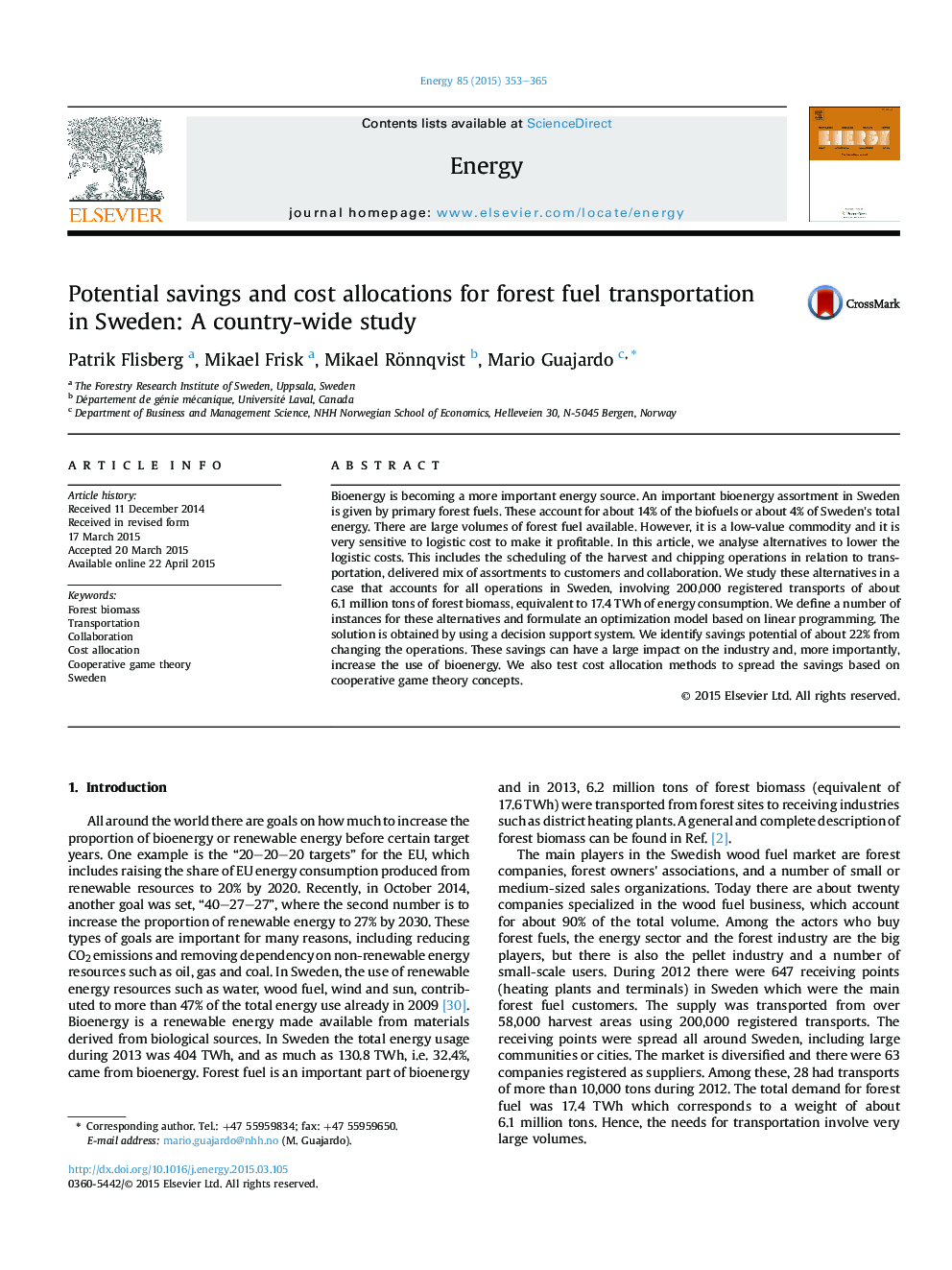| Article ID | Journal | Published Year | Pages | File Type |
|---|---|---|---|---|
| 1732083 | Energy | 2015 | 13 Pages |
•A country-wide study of the forest fuel transports in Sweden is done.•It involves 200,000 transports of 6.1 million ton of biomass equivalent to 17.4 TWh.•Efficient logistic is crucial to make forest fuel a competitive source of bioenergy.•Up to 22% savings are found by better schedules, assortments mix and collaboration.•Savings can have large impact on the industry and increase the use of bioenergy.
Bioenergy is becoming a more important energy source. An important bioenergy assortment in Sweden is given by primary forest fuels. These account for about 14% of the biofuels or about 4% of Sweden's total energy. There are large volumes of forest fuel available. However, it is a low-value commodity and it is very sensitive to logistic cost to make it profitable. In this article, we analyse alternatives to lower the logistic costs. This includes the scheduling of the harvest and chipping operations in relation to transportation, delivered mix of assortments to customers and collaboration. We study these alternatives in a case that accounts for all operations in Sweden, involving 200,000 registered transports of about 6.1 million tons of forest biomass, equivalent to 17.4 TWh of energy consumption. We define a number of instances for these alternatives and formulate an optimization model based on linear programming. The solution is obtained by using a decision support system. We identify savings potential of about 22% from changing the operations. These savings can have a large impact on the industry and, more importantly, increase the use of bioenergy. We also test cost allocation methods to spread the savings based on cooperative game theory concepts.
